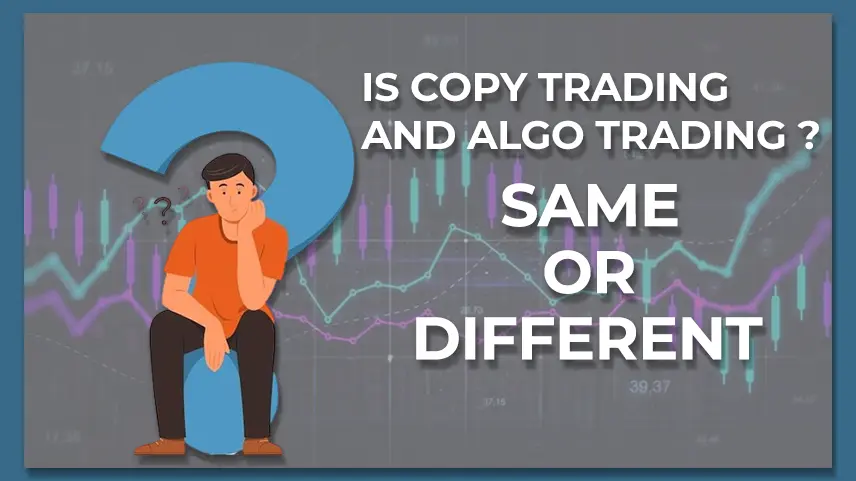
Traders use a variety of strategies and tactics in the world of financial markets to increase their profits and reduce their risks. Two popular approaches that often come up in discussions are copy trading and algorithmic trading. While they both aim to streamline the trading process, there are significant differences between the two methodologies. In this article, we will explore the intricacies of copy trading and algorithmic trading, exploring their unique features, benefits, and limitations.
Copy trading is a method where traders replicate trades from one account to another in real-time. Copy trading allows you to place the trade in multiple accounts at the same time and also helps you copy the trades of expert traders in your trading account. You will need to copy trades from one account to another with copy trading software. Copy trading operates on the principles of transparency and accessibility. It empowers novice traders to participate in the financial markets without the need for extensive knowledge or experience.
Algorithmic trading, often referred to as algo-trading, is a trading strategy that relies on computer programs and algorithms to execute trades. Unlike copy trading, which involves duplicating the actions of other traders, algorithmic trading revolves around the systematic execution of pre-defined rules and instructions. In algorithmic trading, traders develop specific algorithms based on various parameters, such as price movements, volume, and market indicators. These algorithms are then implemented in automated trading systems, which continuously monitor the market and execute trades based on predefined rules.
While copy trading and algorithmic trading share the goal of optimizing trading outcomes, they differ significantly in their approaches and underlying principles. The primary distinction lies in the source of decision-making. Copy trading relies on the expertise of other traders, while algorithmic trading operates on predefined rules and automated execution.
Copy trading provides an opportunity for novice traders to piggyback on the success of experienced professionals, leveraging their skills and knowledge. On the other hand, algorithmic trading empowers traders to create and implement their strategies, relying on data-driven decision-making and automation. In copy trading, the investor relinquishes control over the decision-making process to the copied trader, whereas algorithmic trading allows traders to maintain control over the design and execution of their algorithms.
Both copy trading and algorithmic trading offer unique advantages that cater to different types of investors.
Access to Expertise: Novice traders can leverage the knowledge and experience of successful traders without extensive market knowledge.
Learning Opportunities: Copy trading provides an avenue for beginners to learn about trading strategies and market dynamics by observing and analyzing the actions of expert traders.
Time Efficiency: Investors can save time on market research and analysis by relying on the expertise of others.
Diversification: Copy trading allows investors to diversify their portfolios by copying trades from multiple traders with different strategies.
Speed and Efficiency: Algorithmic trading enables quick trade execution and reaction to market movements, capitalizing on short-term opportunities and avoiding delays caused by human intervention.
Emotion-Free Trading: By removing human emotions from the equation, algorithmic trading minimizes the impact of fear, greed, and other biases that can negatively affect trading decisions.
Backtesting and Optimization: Traders can test their algorithms using historical data, identify flaws, and optimize strategies to improve performance.
Scalability: Algorithmic trading systems can handle large trade volumes, making them suitable for institutional investors and high-frequency trading.
There are various plans available depending on the number of
accounts or licenses you are willing to operate. You can choose the plan as per
your choice.
For more queries, click here to contact us.
Copy trading and algorithmic trading are distinct strategies within the realm of financial markets. Copy trading enables investors to replicate the trades of successful traders. On the other hand, algorithmic trading relies on automation and predefined rules to execute trades based on data-driven decision-making.